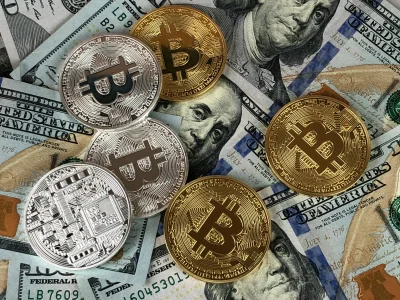
Nigeria is leading Africa as the continent's cryptocurrency hub and riding the wave like a pro. Nigeria is at the forefront of the digital revolution because to its highly tech-savvy populace and remarkable level of financial inclusion. However, as they say, enormous authority also entails enormous regulation. Therefore, for those who want to
trade crypto regulatory organisations shine a light on the constantly changing world of digital currency.
Keep reading to go into the specifics of Nigeria's crypto legislation and regulations, stay tuned. This text will dissect the present legal environment and take a closer look at the future of this exciting sector.
The Rise of Crypto Trading in Nigeria
Nigeria and cryptocurrency go hand in hand when it comes to
trading with leverage; and a number of variables connect the two. Everyone is addicted to their mobile phones, the economy is in a state of flux, and people are always looking for the next big investment. This is where cryptocurrencies come into play and arrive like a bright knight to save us from the horrors of currency fluctuations and inflation. Furthermore, obtaining digital currency has never been simpler because to the proliferation of peer-to-peer trading platforms.
Initial Government Stance
The Nigerian government and banking institutions treated cryptocurrency in its early stages with the caution of a cat eyeing a bathtub.
The Central Bank of Nigeria (CBN) raised concerns about the hazards associated with virtual currencies back in 2017. They were concerned about the sudden fluctuations in value, possible fraud, and its abuse in dubious activities like as supporting terrorism and money laundering. However, similar to advising youngsters to avoid social media, these cautions were disregarded as cryptocurrency trade kept soaring.
Regulatory Crackdown in 2021
Imagine this: In February 2021, the Central Bank of Nigeria (CBN) prohibits financial institutions from experimenting with cryptocurrencies, acting like a lone cowboy confronting a stampeding bull. Banks received a very clear message: either break off all links to cryptocurrency or pay the consequences. The objective? Keep the financial system afloat and control the wild west of cryptocurrencies. Although the embargo temporarily stopped cryptocurrency activity, it also caused P2P trading sites to catch fire. These renegades effortlessly avoid conventional banks, demonstrating that there is always a cryptocurrency maniac around them.
The Role of Peer-to-Peer Trading
Who would have guessed that traders would run to P2P networks like it was the hottest party in town as a result of the CBN's assault on cryptocurrencies? By bypassing established banks and facilitating direct transactions between buyers and sellers, these platforms might be compared to the rebels of the finance industry. How about doing away with the intermediary? The Nigerian crypto community demonstrated its ninja-like adaptability and endurance by switching to P2P trading. The crypto transaction train continued to roll, pushing Nigeria to the top of the global P2P trade charts in spite of the government's attempts to put a stop to it.
Legislative Developments
Like a seasoned gardener pruning back a wild hedge, the Senate got its hands dirty and unveiled a proposal to control digital currencies and blockchain technology. Why? They want to make sure we avoid any traps while still taking use of all the benefits that come with cryptocurrency. Striking a balance between risk regulation and innovation is akin to walking a tightrope. They're also including a side of education, ensuring that everyone is aware of the benefits and drawbacks of the cryptocurrency world. Consider it the Nigerian Senate's crash course on cryptocurrency.
SEC's Role in Crypto Regulation
Imagine this: The Nigerian Securities and Exchange Commission (SEC) declared its intention to intervene in September 2020. Not only were they striking up a conversation, but they also made it clear that they intended to control bitcoin assets in order to protect investors and maintain market stability. How? By classifying cryptocurrencies as "securities" and placing them under the SEC's regulatory purview. This implied that cryptocurrency exchanges and service providers needed to register with the SEC and follow regulations, including as those pertaining to terrorist financing (CFT) and anti-money laundering (AML). It's as if the SEC shouted, "Everyone, line up and play nice," while holding a loudhailer.
Central Bank Digital Currency (CBDC)
The Central Bank of Nigeria (CBN) unveiled the eNaira, its very own central bank digital currency (CBDC), in October 2021 in a manner like to a magician pulling a rabbit out of a hat. This bold move was an attempt to maintain tight control over regulations while capitalising on the benefits of digital currency. The CBN wants to lessen our reliance on cash by implementing a more seamless and inclusive digital payment system with the eNaira. Even while the eNaira isn't technically a cryptocurrency, its introduction shows how the CBN is determined to be at the forefront of financial innovation and has seen the revolutionary potential of digital currencies.
Conclusion
Nigeria's cryptocurrency scene is at a turning point as it navigates changing regulatory waves and changing market tides. The government has moved from tiptoeing cautiously to waltzing with more structured measures to maximise advantages and minimise hazards associated with virtual currency. To fully use cryptocurrencies and promote financial inclusion and economic progress, authorities and the cryptocurrency community must collaborate. See it as a dance floor where innovation and regulation move in unison to guarantee prosperity takes centre stage.




